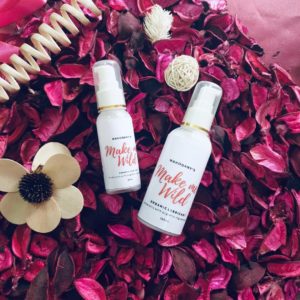Sex Myths You Should Toss Out Now
1. Sex is between a man and a woman, with a penis in a vaginaWhere does that leave people who are intersex, homosexual or transgender? Or those who don’t like penetration? Or those who only practice anal or oral sex? Are lesbians not having sex when they get each other off?
Think of ‘sex’ as an umbrella term for all the consensual sexy acts that get you hot and bothered with someone else – or yourself.
Maybe people are uncomfortable thinking of ‘real sex’ as anything but PIV (penis in vagina) sex, because considering ‘sex’ as an inclusive term raises guilty feels about when you first experienced sex or lost your ‘virginity’. Which brings me to…
2. Virginity is a thing
Is virginity a conceptual or a physical actuality?
If the latter, then anything can ‘take’ your virginity, including a tampon or a jump in the pool. Also, nothing ‘breaks’ your hymen, because this little membrane doesn’t totally cover the entrance to your vagina.
Your vagina isn’t a Pringles can that you pop (although once you pop, you might not want to stop). If it’s a concept, then when do you ‘lose’ your virginity? The dictionary will say something like: you lose your virginity when you practise sexual intercourse for the first time.
If sex is an umbrella term and/or you don’t practice PIV sex, do you remain a virgin regardless of all the crazy kinky sex shit you get up to? Are you still a virgin if you’ve only ever practised mutual masturbation and anal or oral sex?
3. First time sex hurts
Any penetrative sex hurts whenever you’re not ready and you’re expecting the worst. Your body clams up, your vagina clams up, in many cases your vaginal lubrication will dry up and the friction will hurt. But it doesn’t have to hurt.
I’m not saying it won’t maybe be weird and uncomfortable, but pain doesn’t have to happen. It’s not an inherent feature in your first penetrative experience.
4. Foreplay is for her, men are always ‘on’
The shtick we’re told over and over again is that women need more foreplay than men and men are always ready. If you’re going to accept that ‘sex’ is a bunch of different sexual acts, what is foreplay?
The story we’re told about foreplay is: To ‘get her ready for sex’ practice some oral sex or lick her nipples … then when she is ready for penetration you can have sex with her.
There is foreplay and then there is sex.’ But all that ‘foreplay’ stuff is really just sex and you’re either ready for it or you’re not. You either need slow sex and a longer build up or you can get off on a quickie.
If you want to talk about foreplay, then talk about the chemistry you and your guy have and work on as part of your relationship culture – the intimacy you generate throughout the day in your conversations, your displays of affection and how you invest time in each other.
5. Men want sex, women want emotional connection
This is an incredibly old model, one that is sexist, old-fashioned and stupid. It’s the Men Are From Mars, Women Are From Venus paradigm.
My paradigm is: Humans are from Earth, like to socialize, generally like to copulate, want to be accepted and have feelings. We have been socialized to believe that men and women are so fundamentally different that we forget the humanity underpinning it all.
6. Great sex comes naturally
Great sex is like learning how to cook. Everyone can eat food, just like everyone can bump genitals together. But while some people will be content to eat an apple, others will learn how to make the finest French apple tart and serve it with dollops of clotted cream and sugared strawberries.
Being a good lover depends mostly on stuff that has nothing to do with your genitals, including self-knowledge, being able to communicate clearly, being open to exploring and being generous with your time and attention – and learning some skills.
Unfortunately, when most of us are presented with our first lovers (usually at a very young age, see above ‘Sex is between a vagina and penis’) our experience is of chomping on a plain apple when we were expecting the French apple tart. Sadly, this can easily colour one’s experience of sex and desire, and label the whole fiasco as less than satisfactory fact forever and always.
7. Everybody likes sex, right?
Well no. Some people really don’t. Maybe it’s due to some trauma or bad early experiences with intimacy and sex. Maybe sex just isn’t that much of a priority. But there are also asexual people who just literally do not feel sexual attraction or desire.
It doesn’t mean they don’t fall in love, need or want physical tenderness or have successful relationships; they just don’t feel the lusty pull of desire on their loins.
8. Your number matters.
No it doesn’t. Simple as that. Quantity means as little to your morality as it does to your prowess as a lover. The only purpose someone’s judgement and shaming serves around the number of men and women I’ve been with, is as an accurate measure of their friend and/or partner viability in my life.
Save yourself a lot of time by not taking responsibility for someone else’s issues when they have a problem with your ‘number’.
9. Sex is about orgasm
Another product of the goal-driven society. Orgasm is great, no one is denying that. But it is not the only pleasure we derive from physical intimacy with each other. Loving and/or enjoyable skin-to-skin interaction sets off a chemical reaction in the body that releases a lot of happy hormones that go a long way to build affection and bonding.
10. Men reach their sexual prime when they’re 18, women when they’re 35.
I’m going use the scientific term for this: Rubbish. This myth unfolded from very old, socially dated research from the Kinsey data.
What is now being posited is genital prime and sexual prime. The former is driven by biological factors (hormones, health and so on) and the latter social factors (your experience, maturity and general joie de vivre).
Sexual anthropologist Bella Ellwood-Clayton writes about this in her book ‘Sex Drive’ and says: ‘Female desire can be peaking all along, ebbing and flowing throughout the life course.’












